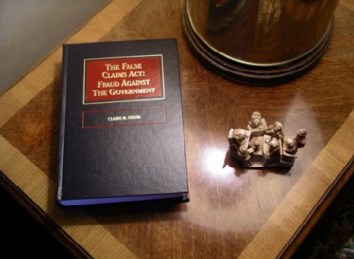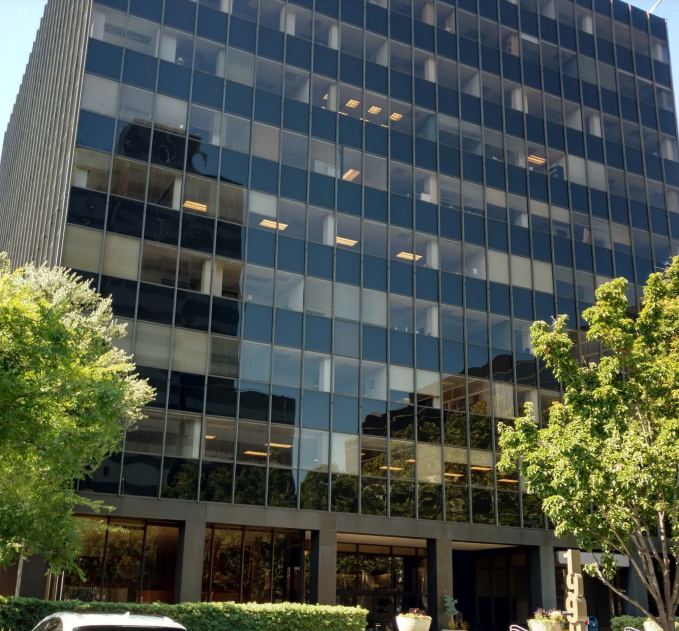Experienced False Claims Act California Law Office
The FCA, 31 U.S.C. §§ 3729–3733, authorizes whistle-blowing private citizens to file suit on behalf of the Government after discovering that the Government has been defrauded. Schindler Elevator Corp. v. United States ex rel. Kirk, 131 S. Ct. 1885, 1889 (2011).
For the fiscal year 2021 alone, the False Claims Act (“FCA”) was used to recover more than $5.6 billion in settlements and judgments from civil cases involving fraud taxpayer funds that had been taken via false claims. Such was the second largest annual total in False Claims Act history, and the largest since 2014. Settlements and judgments since 1986, when Congress substantially strengthened the civil False Claims Act, now total more than $70 billion. See DOJ Press Release, Office of Public Affairs, “Justice Department’s False Claims Act Settlements and Judgments Exceed $5.6 Billion in Fiscal Year 2021 – Second Largest Amount Recorded, Largest Since 2014″ (2/1/2022) (https://www.justice.gov/opa/pr/justice-department-s-false-claims-actsettlements-and-judgments-exceed-56-billion-fiscal-year.
The FCA was originally known as “Lincoln’s Law,” with roots in the U.S. Civil War, as enacted in 1863 as a result of concern by President Lincoln and Congress that suppliers of goods to the Union Army during the Civil War were defrauding the Army, such as passing off boxes of sawdust as boxes of ammunition. Before that, qui tam had its origins in England, in the form of actions for and on behalf of the King. In fact, Latin phrase “qui tam pro domino rege quam pro se ipso in hac parte sequitur,” which translates “he who pursues this action on our Lord the King’s behalf as well as his own”.
The FCA provides for liability for any person who, among other things, “knowingly presents . . . a false or fraudulent claim for payment” to the U.S. Government; “knowingly makes [or] uses . . . a false record or statement” to obtain payment of a false or fraudulent claim by the government . . . .” 31 U.S.C. § 3729(a). Although the FCA requires the U.S. Attorney General to investigate violations, Id., § 3730(a), an FCA civil action be brought either by the U.S. or by a relator in a private action. Id. § 3730(a),(b).
Essential elements of FCA liability are: (1) a false statement (or fraudulent course of conduct), (2) made with scienter, (3) that was material, (4) causing the government to pay out money or forfeit moneys due. United States ex rel. Hendow v. Univ. of Phoenix, 461 F.3d 1166, 1174, reh. den. (9th Cir. 2006), cert. denied 127 S.Ct. 2099 (2007).
The provision of nonconforming goods – such as providing a product that has technology of a different national origin than represented – can be a basis of liability under the FCA. See United States ex rel. Hopper v. Anton, 91 F.3d 1261, 1266 (9 th Cir. 1966).
In the typical FCA action, such as where a private company overcharges under a government contract, the claim for payment is literally false or fraudulent. Id. Congress, however, has emphasized that the FCA should be broadly construed “to reach all types of fraud Page 1 of 3 . . . that might result in financial loss to the Government.” United States v. Neifert-White Co., 390 U.S. 228, 232 (1968). Thus, the FCA does not limit liability to facially false or fraudulent claims for payment. Rather, the “broad construction of a ‘false or fraudulent claim’ [has] given rise to two doctrines that attach potential [FCA] liability to claims for payment that are not explicitly and/or independently false: (1) false certification express or implied); and (2) promissory fraud.” Hendow, 461 F.3d at 1171.
The FCA is the Government’s “primary litigative tool for combating fraud” against the U.S. See S. Rep. No. 345, 99th Cong., 2d Sess. at 2 (1986), reprinted in 1986 ISKCON 5266; Kelly v. Boeing Co., 9 F.3d. 743, 745 (9th Cir. 1993). Congress, via the FCA, has provided an effective tool for enforcement, and this Circuit has strongly endorsed the use of the FCA to hold entities selling goods and services to the Government to the promises those entities make – even promises as simple as a “handshake” – in order to continue feeding at the government trough. Hendow, supra, at 1166.
The downside for an FCA violator is severe: Treble damages, automatic award of attorneys’ fees to a prevailing relator, and a statutory penalty for each false claim or statement (to maximum of $23,607 per claim or statement). See 31 U.S.C. §§ 3729(a)(1), 3730(d)(2); 81 Fed. Reg. 26127-26129.
On the other hand, the FCA also protects a relator against retaliation. 31 U.S.C. § 3730(h)). It specifically protects a relator against an award of attorneys’ fees to a prevailing defendant by limiting such an award only to the extremely limited circumstance where the court judgment found the relator’s claim clearly frivolous, clearly vexatious, or brought primarily for the purposes of harassment. 31 U.S.C. § 3730(d)(4).
The incentive for an FCA whistleblower (“relator”) is entitlement to a “relator’s share” of the recovery of 15%–25% in a case where the Government intervened to prosecute, and 25%–30% where the relator did the prosecution. 31 U.S.C. § 3730(d).
An FCA qui tam complaint is filed in federal court under seal and is not initially served on the defendant. The complaint is delivered, together with a “disclosure statement” containing all facts material to the action, to the U.S. Attorney General and to the U.S. Attorney’s Office in the district in which the complaint is filed. Government counsel, for good cause shown, may move the court for successive extensions of the seal. See 31 U.S.C. § 3730(b)(2)-(3).
After receiving the complaint and the disclosure statement, DOJ has a period of time within which to investigate the allegations and decide whether to “intervene in” (i.e., take over prosecution of) the action. If the Government decides not to intervene, it files a “notice of declination”, and, the relator may prosecute the action alone. The Government has the right to intervene at a later date upon a showing to the court of good cause. See 31 U.S.C. § 3730(b)(4).
One of the two sponsors of the 1986 Amendments to the FCA made clear that a declination to intervene is not determinative of the merit of a case. In 1999, U.S. Congressman Howard Berman asserted: “One of the principal goals of the 1986 Amendments was to ameliorate the “lack of resources on the part of Federal enforcement agencies.” S. Rep. 99-345 at 7. That was one of ther reasons we strengthened the qui tam provisions of the law. Thus, we expected some meritorious cases to proceed without the Government’s intervention, and we fully expected that the Government and relators would work together in many cases to achieve a just result. By dismissing relators based on spurious interpretations of the [FCA], the courts are depriving the Government of these additional resources. And those resources have beenc onsiderable. See 106 Cong. Rec. #1546-E1548 (1999) (statement of Congressman Berman) emphasis supplied).
The Supreme Court mandates a broad statutory interpretation of the FCA, because it is “intended to reach all types of fraud, without qualification, that might result in financial loss to the Government.” Neifert-White Co., supra.
In 1986, Congress amended the FCA to broaden its availability to “enhance the Government’s ability to recover losses sustained as a result of fraud against the Government.” See S. Rep. No. 99-345, at 2 (1986), reprinted in 1986 ISKCON 5266. Such action was in response to judicial decisions taking a restrictive approach to the FCA. See Id. at 4, reprinted in 1986 ISKCON at 5269.
In addition to the Federal FCA, there are state FCA’s in many states, working to discourage frauds perpetuated against state governments and their political subdivisions. The California FCA is at Cal. Gov. C. §§ 12650 et seq. See TAF Education Fund, State False Claims Acts (https://www.taf.org).
With False Claims Act cases being relatively rare, the outcome of a qui tam action can depend on the aggressiveness, experience and caseload of the particular U.S. Attorney Office to which the case is assigned, and on the luck of the draw as to the particular U.S. District Judge to whom the case is assigned. Some judges know the False Claims Act backwards and forwards; others, through no fault of their own, at the time may have little or no experience with this relatively obscure practice area, or may be so busy with work on a high-profile months-long jury case that causes other cases to receive the short end of the stick. Accordingly, where jurisdiction exists in multiple locales, a qui tam case may be best filed in a district outside California where the AUSAs and the judges take great preide in enforcing the FCA. In such districts where the FCA enforcement track record is exceptional, Daniel Bartley may join forces with qui tam co-counsel there to prosecute your qui tam case.
Please fill out the form below and our attorney will contact you.



